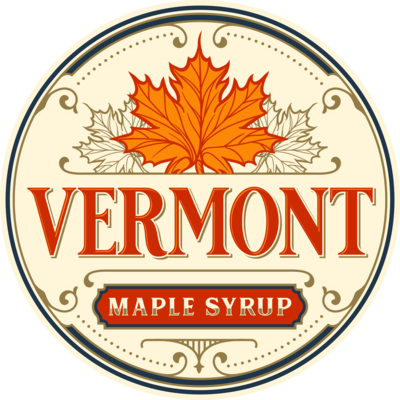Vermont maple syrup, a golden elixir loved for its pure sweetness, is often the subject of various myths. In this blog post, we will debunk these misunderstandings and shed light on the truth behind this amazing sweet treat. From its nutritional benefits to sustainable production practices, let's explore the facts about this great treat.

Photo — Kris Radder, Brattleboro Reformer
The natural purity of Vermont maple syrup
Contrary to popular belief, Vermont maple is a naturally pure product. Organic varieties are derived solely from the sap of maple trees, without any additives or preservatives. This natural sweetness ensures a genuine and authentic flavor that captures the essence of Vermont's maple forests.
Understanding the different grades of Vermont maple syrup
Some myths arise from the varying grades of Vermont maple. It is important to clarify that different grades represent the different stages of sap gathering throughout the sugaring season. From the lighter, delicate taste of Grade A to the robust flavors of dark and very dark, each grade offers unique culinary opportunities.
The health benefits of Vermont maple syrup
While some may think maple products as a less healthy sweetener, it actually boasts several health benefits. It contains essential minerals like manganese and zinc, aiding immune function and overall health. Additionally, Vermont maple syrup has a lower glycemic index than refined sugars, making it a favorable choice for regulating blood sugar levels (1)..
Vermont maple syrup and sustainable practices
Another common myth is that maple production harms the environment. On the contrary, certified organic Vermont maple syrup is harvested through sustainable tapping practices. Maple trees are tapped responsibly to ensure their continued health and longevity. This sustainable approach allows maple forests to thrive and preserves biodiversity (2).
Debunking maple syrup's caloric reputation
One myth concerns maple's caloric content. While it is true that maple syrup is a sweetener, its caloric value is comparable to other natural sweeteners like honey or agave nectar (3). Moderation is key, but enjoying some as part of a balanced diet can be a sweet and guilt-free treat.
Versatility beyond breakfast
Some believe that maple products, syrup, candy and other sweet treats, should only be kept for breakfast . However, this versatile sweetener extends far beyond pancakes and waffles. Its rich flavor profile goes well with a myriad of dishes, from glazing meats and vegetables to spicing up desserts and beverages.
Debunking the perception of artificial additives
Concerns may arise about the presence of artificial additives in maple products. Rest assured, organic maple products are free from any artificial ingredients. The process of producing maple sees boiling down the sap to concentrate its natural sugars, resulting in a pure and natural product.
The cultural significance of Vermont maple syrup
Maple production holds importance in Vermont's history and tradition. It represents the state's connection to nature and the art of sugar making, passed down through generations. The appreciation for this liquid gold has become an big part of Vermont's identity.
By clarifying common myths about Vermont maple syrup, we gain a deeper appreciation for this great sweetener. Its natural purity, health benefits, and sustainable production practices make it a truly unique and wonderful product. Embrace the real flavors of Vermont maple, knowing that it not only delights the taste buds but also supports a sustainable and healthy lifestyle.
***
Vermont Maple Syrup makes the best organic Vermont maple syrup, maple sugar, and maple candy you will taste. In classy, nostalgic packaging that puts Vermont first. Organic, pure small-batch maple syrup and maple sugar — tapped, collected, and made available from our 1,200-acre farm in the small town of Guilford, Vermont, USA.










